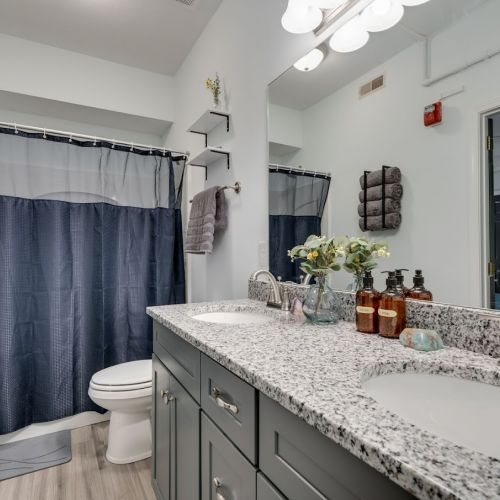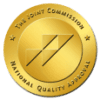When kratom use has taken over your day, you deserve a calm, clinical reset. Our physician-led medical detox provides round-the-clock monitoring, symptom-targeted medications when appropriate, and a clear plan for what comes next. With 24/7 care and a seamless step-down to residential, PHP/IOP, and aftercare, you don’t have to navigate early withdrawal alone.
If you’re searching for kratom detox in Tennessee, our Admissions team can help you choose the right starting level and verify benefits in minutes.
What Is Kratom?
Kratom is a tropical evergreen (Mitragyna speciosa) native to Southeast Asia, where its leaves have been used for centuries. [1] In recent years, powders, capsules, teas, and concentrated extracts have become widely available in the United States.
People are often drawn to it for “natural energy,” mood lift, or self-management of pain and withdrawal symptoms.
While some use is short-term and uneventful, others find themselves dosing more often or at higher strengths to feel “normal,” and cutting back becomes difficult without support. Our role is to replace guesswork with a safe, structured path forward.
Kratom leaves contain plant alkaloids—most notably mitragynine and 7-hydroxymitragynine—that interact with receptors involved in pain, mood, and stress response. [2] At lower amounts, many users report stimulation and focus; at higher amounts, effects can feel more sedating.
Commercial products vary widely in potency and purity, and concentrated extracts may deliver far higher doses than traditional preparations. That variability is one reason some people experience creeping tolerance and uncomfortable withdrawal when they try to stop.
Understanding this pharmacology helps explain why a medical assessment is valuable before you make changes.
Motivations are diverse. Some use kratom for a mid-day boost, to take the edge off anxiety, to sleep, or to manage chronic pain. Others turn to it while attempting to taper off opioids on their own, hoping for a “bridge” through withdrawal.
These are human, understandable choices made in the search for relief. The challenge comes when the solution becomes the problem—when doses escalate, routines center on dosing, or you notice irritability, low mood, or sleep disruption without it.
If you’re exploring kratom detox Tennessee options, you’re not alone, and there is a clinical framework to help you step down safely and steadily.
Kratom’s legal status in the U.S. is evolving and can differ by state or locality. Tennessee law has changed over time and may continue to do so; retailers, smoke shops, and online vendors have made access relatively easy.
We don’t provide legal advice, but you don’t need to memorize every statute to get help. What matters most is your health and safety. If you want to detox from kratom safely, our medical team will assess your use pattern, overall health, and any co-occurring issues (such as anxiety, depression, trauma, or pain) and propose a plan that fits your life.
If you’re ready to move from uncertainty to clarity, start with a private call to Admissions/Verify Insurance so you understand coverage and next steps.
See our Medical Detox program overview for a deeper look at how stabilization works here. From the first conversation to the first 72 hours on site, our focus is consistent: comfort, dignity, and a reliable transition into the level of care that sets you up for lasting change.
Is Kratom Addictive?
Kratom often enters people’s lives as a “natural” helper—something to take the edge off pain, stress, or low energy. But “natural” doesn’t mean risk-free. Like many substances that act on the brain’s reward and stress systems, repeated kratom use can teach your body to expect it. Understanding how tolerance and dependence develop can make the next step of getting safe and appropriate help feel less mysterious.
At first, a small amount of kratom may feel noticeably energizing or calming.[3] With frequent use, the nervous system adapts. Receptors that kratom stimulates become less responsive, and signaling pathways adjust to the new normal.
The effect? The same dose doesn’t deliver the same relief.
People describe this drift in everyday terms: the morning scoop quietly becomes a heaping scoop, a single afternoon dose turns into two, and powders give way to “extra strength” extracts.
This isn’t a moral failure; it’s basic biology. The brain is built to maintain balance. When a substance routinely pushes on a system, the system pushes back.
Over weeks or months, tolerance can climb high enough that skipping or reducing a dose doesn’t just feel uncomfortable; it can make you feel unwell.
Dependence develops when your brain and body start to rely on kratom’s signals to feel steady. You may notice a pattern: you wake up groggy or edgy until you dose; your appetite or mood swings with your intake; sleep gets choppy if you try to cut back.
When you delay or miss a dose, symptoms can appear, such as restlessness, anxiety, irritability, muscle aches, chills or sweats, headache, queasy stomach, loose stools, and trouble sleeping. Some people also report a “wired-tired” feeling: exhausted but unable to settle down.
These sensations are often described as a blend of flu-like discomfort and heightened nerves. They’re not your imagination; you don’t have to white-knuckle them.
A structured plan for kratom withdrawal treatment TN focuses on safety, hydration, sleep support, and symptom-targeted medications when appropriate, so you can get through the peak without boomeranging back to the dose that keeps the cycle going.[4]
Kratom leaves contain alkaloids primarily mitragynine and 7-hydroxymitragynine that interact with several systems in the brain and body. [5]
- Reward & relief pathways: Some kratom alkaloids can stimulate the same families of receptors that respond to pain-relieving medications. That’s part of why kratom can feel soothing or take the edge off discomfort, but it’s also why stopping suddenly may produce body aches or a “something’s missing” sensation.
- Stress and arousal: Kratom can influence signaling involved in alertness and anxiety. At lower amounts, many people feel more awake; at higher amounts, they may feel sedated. When the external push is removed, the stress system can rebound in the other direction with racing thoughts, jitteriness, or insomnia.
- Individual variability: Products differ widely in potency, especially concentrated extracts. Your own biology, including metabolism, co-occurring conditions, and other substances, also shapes how kratom feels and how withdrawal unfolds. Two people can take similar amounts and have very different experiences.
The takeaway isn’t that kratom is “good” or “bad.” It’s that repeated use can train receptor systems in ways that make stopping hard without a plan. That’s exactly where medical kratom detox comes in: it provides medical oversight and evidence-informed comfort strategies while your nervous system rebalances.
How do you know when it’s time to consider a medically supervised start?
- Escalating use: You’re taking more or stronger products just to keep from feeling off.
- Loss of control: You intend to limit frequency or dose, but the plan doesn’t stick.
- Time & focus: A lot of your day revolves around dosing, recovering, or getting more.
- Withdrawal avoidance: You’re dosing primarily to dodge anxiety, aches, or insomnia.
- Polysubstance use: You’re also using alcohol, benzodiazepines, or opioids to “smooth out” rough spots or leaning on stimulants to counter sedation. This combination raises medical risk and relapse pressure.
- Mental health strain: Anxiety, depression, trauma symptoms, or chronic pain are driving use, and attempts to quit make those symptoms spike.
- Life impact: Work or school performance slides, relationships fray, or finances tighten because of kratom.
If several of these sound familiar, a conversation with a medical team can prevent a lot of suffering. In a supervised setting, clinicians assess your health history, current use, and co-occurring conditions; monitor vitals; manage hydration and nutrition; and consider short-term, non-addictive medications to ease specific symptoms.
If several of these sound familiar, a conversation with a medical team can prevent a lot of suffering. In a supervised setting, clinicians assess your health history, current use, and co-occurring conditions; monitor vitals; manage hydration and nutrition; and consider short-term, non-addictive medications to ease specific symptoms.
The aim isn’t just to get you through a tough week. It’s to set up what comes after, whether residential support, PHP/IOP, or a tailored outpatient plan.
Not sure if this fits you? Call Admissions for a same-day assessment. You’ll leave the call with a clear, step-by-step plan for starting safely and support for the first few days, when the right help makes the biggest difference.
Kratom Withdrawal Symptoms & Timeline
Kratom withdrawal is real, but it’s also predictable. Knowing what tends to happen and when can help you prepare, pace yourself, and decide whether you’ll benefit from medical support.
The arc below reflects common patterns our clinicians see; your exact course will vary based on dose, frequency, product potency (powders vs. concentrates), biology, co-occurring conditions, and whether alcohol, benzodiazepines, or opioids are also present.
Early Phase (0–24 hours)
For many people, the first day feels less like a crash and more like a rising hum of discomfort.
- Anxiety & restlessness. A wired-but-tired sensation sets in: you’re keyed up, fidgety, and can’t find a comfortable spot.\
- Cravings. Mental pull to dose “just a little” to take the edge off. Expect bargaining thoughts (“I’ll only use once”).
- GI upset. Queasy stomach, cramping, loose stools; dehydration can start here if you’re not careful.
- Sweats & chills. Temperature dysregulation—clammy hands, intermittent goosebumps.
- Aches. Stiff neck/shoulders, low-back or limb aches, headache.
What helps now: Front-load hydration and electrolytes, light salty foods, and a simple schedule: short walks, warm showers, bland meals, and a firm bedtime routine (screens down, dim lights, breathing exercises).
If you’re in Medical Detox, nurses monitor vitals, start symptom-targeted comfort meds when appropriate (e.g., for nausea or autonomic overdrive), and coach you through early cravings so you don’t white-knuckle alone.
Acute Phase (24–72 hours)
This window is often the peak. Symptoms intensify, then crest.
- Sleep disruption. Trouble falling or staying asleep; vivid or unsettling dreams.
- Mood lability. Irritability, tearfulness, low mood, flashes of anger—often out of proportion to triggers.
- Flu-like feelings. Fatigue, body aches, headache; some describe “lead legs” or feeling feverish despite normal temperature.
- Autonomic symptoms. Sweats, chills, rapid pulse, occasional spikes in blood pressure; anxiety can amplify these.
- Heightened sensitivity. Noise and light feel loud; minor stressors feel overwhelming.
What helps now: Structure and supervision. In a clinical setting, staff adjust comfort medications based on your response, ensure steady fluid intake, track sleep, and watch for complications.
You’ll also practice micro-skills that blunt the worst moments: paced breathing (inhale 4, exhale 6), 10-minute walks after meals, a warm compress for muscle tension, and brief, coached “urge surfing” to ride out spikes.
If home-based, line up a support person, keep a hydration/meal checklist, and avoid isolation; consider whether a monitored setting like Residential Treatment would make this period safer and more tolerable.
Sub-Acute (Day 4–7+)
As the acute wave passes, most people feel less volatile but not yet like themselves. This is where many slip because the relief is partial, motivation is wobbly, and the brain’s reward circuitry hasn’t caught up.
- Lingering insomnia. You may fall asleep, then pop awake at 3–4 a.m.
- Fatigue & low drive. Tasks feel heavier; even pleasant activities can seem flat.
- Irritability & “brain fog.” Short fuse, scattered focus, slower word-finding.
- Anhedonia. Diminished ability to feel pleasure or motivation; this is temporary but uncomfortable.
- Cravings tied to routines. The body remembers dosing times (morning, post-work, late evening) and nudges you there.
What helps now: Routine is medicine. Anchor wake/sleep times, keep three predictable meals, and schedule two short movement blocks daily (10–20 minutes). Pre-plan “hot hour” substitutions for former dosing windows: call a support person, take a walk, do a guided relaxation, or prep tomorrow’s meals.
If you started in Medical Detox, your team may introduce light CBT/DBT skills sessions to rebuild stress tolerance and motivation while your nervous system normalizes. Many clients transition to Residential Treatment or PHP/IOP at this stage to capture momentum and prevent a “day-5 detour” back to dosing.
Signs You May Need Kratom Detox
Most kratom withdrawals are manageable with a structured plan, but some warning signs mean you should seek medical attention, especially if you’re not already in a supervised setting:
- Dehydration. Inability to keep fluids down, dark urine, dizziness when standing, dry mouth, or confusion.
- Severe agitation or panic that doesn’t improve with basic grounding strategies.
- Chest pain, fainting, or persistent rapid heartbeat.
- High fever, rigid muscles, or severe headache unrelieved by over-the-counter medication.
- Suicidal thoughts or intent, overwhelming despair, or thoughts of harming yourself/others.
- Polysubstance risks. Using alcohol, benzodiazepines, or opioids to “smooth out” withdrawal increases overdose and medical complications—this warrants professional monitoring.
In a Medical Detox program, clinicians track these metrics proactively, adjust medications, and escalate care if needed. They also coordinate a warm handoff into the right next level of care—residential Treatment, PHP/IOP, or outpatient—so you’re not left on your own just as the sub-acute phase begins.
If you want to detox from kratom safely, the combination of medical monitoring, symptom-targeted care, and a step-down plan can lower risk and shorten the roughest stretch.
Whether you start in Medical Detox or move directly into Residential Treatment after initial stabilization, the key is continuity, so your early gains turn into lasting change rather than another cycle of stop-and-start.
Why Medical Detox for Kratom Is Recommended
Kratom withdrawal isn’t usually life-threatening, but it can be physically miserable and emotionally volatile, which are two conditions that make relapse far more likely. A medical kratom detox is not about “hospitalizing” you for no reason; it’s about lowering the difficulty of the first week so you can actually finish it and move forward with a clear head.
Dangers of “Cold-Turkey”
Stopping on your own sounds straightforward until the symptoms stack up. Anxiety ramps, sleep falls apart, and the body’s stress systems surge. By night two or three, many people are running on fumes, negotiating with themselves for “just one dose to get some rest.” That bargain is how cycles restart.
Physical symptoms add fuel to the fire. Nausea, cramping, and loose stools can lead to dehydration, dizziness, and headaches, making eating, sleeping, or regulating mood even harder.
If you’re also using alcohol, benzodiazepines, or opioids to “take the edge off,” the medical risks rise and the odds of a misstep climb. Cold-turkey may be possible, but it’s often the hardest, loneliest version of a process that’s already taxing.
Mental Health Stability
Many people use kratom to manage anxiety, low mood, trauma-related symptoms, or chronic pain. Remove the substance, and those underlying issues can flare right when you feel least equipped to handle them.
Sleep becomes fragile, irritability spikes, and ordinary stressors feel oversized. Cravings aren’t just about “wanting a high”; they’re often about wanting relief from discomfort that suddenly has no outlet.
In a supervised setting, clinicians can separate withdrawal noise from true mood or anxiety disorders, offer short-term, symptom-targeted medications when appropriate, and teach practical skills for getting through the roughest hours without reverting to old patterns.
Just as important, they monitor for signs of deeper distress, such as panic that won’t let up, severe agitation, or thoughts of self-harm and act quickly if those emerge. Stabilizing mind and body together isn’t optional; it’s what makes early recovery stick.
Structured Support That Changes the Equation
Structure is the difference between “trying to survive the next 72 hours” and “following a plan.” In medical detox, you can expect:
- Vitals & safety checks. Regularly monitor heart rate, blood pressure, temperature, hydration status, and withdrawal severity. Subtle changes are spotted early, before they spiral.
- Hydration & nutrition built in. Scheduled fluids and simple, tolerable meals (plus anti-nausea or anti-diarrheal support when indicated) keep energy and electrolytes stable.
- Sleep strategy. A concrete wind-down routine, light exposure timing, and, when appropriate, non-habit-forming sleep aids to shorten the worst nights and protect next-day function.
- Symptom-targeted medications. Carefully dosed options (for autonomic overdrive, aches, GI upset, or intense anxiety) are adjusted in real time based on your response, but are never one-size-fits-all.
- Craving management in action. Brief, coached techniques like paced breathing, urge surfing, and grounding are practiced when needed, not just discussed in theory.
- Rapid escalation if needed. If something changes, such as escalating agitation, signs of dehydration, or a concern about vita, your team can intervene immediately or coordinate higher-level medical care.
This scaffold does more than get you through a week; it sets up the next chapter. As symptoms ebb, you transition often seamlessly into residential, PHP/IOP, or outpatient care. That continuity matters. The same clinicians who learned your history during detox help shape your therapy plan, medication follow-ups, family involvement, and aftercare schedule. You’re not starting over with strangers; you’re building on a foundation you’ve already laid.
Most of all, supervised detox respects your reality. You may have a job, classes, or a family schedule. You may be worried about cost or privacy. A structured start gives you a realistic timeline, clear expectations, and support that flexes with your needs. It’s not about making withdrawal “easy.” It’s about making it doable and converting that short-term win into long-term progress.
Ready to take the first step without going it alone? Talk with our team about a safe, supported start. We’ll help you map the first 72 hours, review your benefits, and connect you with the right care level so you can confidently move forward.
What Happens During Kratom Detox in Tennessee?
Detox works best when it’s predictable: you know what’s happening now, what’s next, and who’s watching out for you at every turn. Here’s exactly how Tennessee Detox Center guides you from first call to your next level of care, with medical oversight, practical comforts, and clear communication.
-
Intake & Medical Evaluation
Your first hours on site are about clarity and safety. After a private check-in, a nurse and provider review your use history (products, amounts, timing, “must-dose” moments), medical conditions, medications, supplements, and any alcohol/benzodiazepine/opioid use. We complete a co-occurring mental-health screen for anxiety, depression, trauma symptoms, sleep disorders, and pain issues.
When clinically appropriate, we obtain baseline labs (for example, CBC, CMP, LFTs, pregnancy testing when relevant) to understand hydration and organ function before beginning comfort-medication protocols.
We also perform medication reconciliation to avoid interactions and to ensure that necessary home meds continue safely. This assessment becomes your roadmap: it identifies your withdrawal risk window, likely symptom pattern, and the supports most likely to help you through it.
-
Personalized Stabilization Plan
Next, your team builds a stabilization plan tailored to your physiology and goals. We define symptom thresholds (for anxiety, autonomic activation, GI upset, musculoskeletal pain, and insomnia) that trigger specific interventions, so you aren’t waiting until things feel unbearable.
Your comfort-med protocol may include non-addictive options for nausea, diarrhea, muscle aches, headaches, and sympathetic overdrive. If your assessment suggests opioid-like dependence or significant polysubstance use, the provider will discuss additional options that may be used only when clinically indicated.
You’ll know exactly which medications are on the table, why they’re being considered, and how we’ll taper or discontinue them as you stabilize.
Because sleep sets the tone for everything else, we implement a sleep strategy on night one: a predictable wind-down schedule, light exposure guidance, caffeine cut-off times, and, when appropriate, short-term sleep supports that won’t create new problems.
We also schedule hydration and nutrition: small, frequent fluids with electrolytes; gentle, easy-to-digest meals; and adjustments for nausea or poor appetite. A written day-by-day plan goes in your chart and your hands, so you can see progress and know what’s coming.
-
24/7 Monitoring
Detox is dynamic; your needs change hour to hour. Our nursing team performs regular vitals and withdrawal-severity checks to catch problems early before they compound into sleepless nights or dehydration.
We track heart rate, blood pressure, temperature, oxygen saturation, intake/output, and symptom scores, and we watch for red flags such as escalating agitation, orthostatic dizziness, or persistent vomiting.
Because every intervention is responsive, clinicians make real-time dose adjustments to comfort medications based on how you’re doing, not on a rigid schedule. If a symptom cluster spikes, we escalate quickly: adding or adjusting meds, increasing monitoring frequency, or involving the provider for bedside reassessment.
Behind the scenes, we maintain clear escalation pathways. If a lab value drifts or a vital sign concerns us, we immediately involve the appropriate level of medical support. This “no surprises” approach is why many people choose a supervised setting: it lowers risk and shortens the roughest stretch of withdrawal.
-
Therapeutic Support During Detox
While your body stabilizes, we start strengthening the skills you’ll lean on after detox. Early sessions are brief and targeted—think 15–30 minutes—matched to your energy level. You’ll learn:
- CBT micro-tools for “automatic thoughts” that drive dosing (“I can’t sleep without it”), including urge-surfing and 10-minute delay techniques.
- DBT distress-tolerance skills include paced breathing (inhale 4, exhale 6), grounding with the five senses, and quick muscle-tension releases that cut anxiety’s edge.
- Psychoeducation about the withdrawal timeline, normalizing symptoms like vivid dreams, low motivation, and morning anxiety, so you don’t mistake them for failure.
As you feel stronger, we invite you to light group sessions focused on sleep routines, nutrition for early recovery, and practical planning for the first week at home or in the next level of care. The aim isn’t to process your whole history on day two; it’s to give you actionable routines you can use tonight.
-
Family Updates
If you want loved ones involved, we schedule structured updates so they understand your plan and how to support it. We clarify expectations and boundaries, like which check-ins are helpful, how to handle invitations and social time, and what to do if cravings spike at home.
Families receive support tips grounded in what helps: praise effort over outcomes, keep evenings predictable, model calm routines, and avoid debates during high-stress moments.
When it’s clinically appropriate, we’ll recommend family therapy in the next phase of care to strengthen communication and rebuild trust in a guided setting.
-
Readiness for Next Level of Care
Detox is a beginning, not a destination. Beginning on day two, we evaluate readiness markers for transition: stabilized vitals, manageable symptom scores, sufficient sleep to engage in therapy, and a clear plan for cravings and high-risk windows.
We discuss your home environment, work/school obligations, transportation, and family supports to recommend the right level of care next:
- Residential Treatment: best when structure, 24/7 support, and daily therapy will protect your progress, especially with moderate to severe dependence, recurrent relapses, or significant co-occurring conditions.
- PHP/IOP/OP: with ongoing medication management and skills practice, for those able to sleep at home and engage reliably in several hours of therapy per day (PHP) or per week (IOP/OP).
Before you are discharged, we schedule everything: your admission date/time for Residential or PHP/IOP, your first individual therapy appointment, any prescriber follow-ups, and your initial peer-support plan.
You leave with a written aftercare checklist that includes contacts, appointment times, a simple sleep plan, and a one-page craving-management script for the first 10 days. If you haven’t already, we’ll also complete a quick Verify Insurance step so you know exactly what your benefits cover going forward.
Our process is about clarity, comfort, and continuity from the first assessment to the warm handoff. If you’ve been searching for a kratom detox center TN residents can trust or comparing options for kratom detox Tennessee, this step-by-step approach is designed to make a difficult week doable and to set you up for sustainable progress in the level of care that fits your life.
Medications Used During Kratom Detox
Medications in detox aren’t “magic bullets.” They’re tools a medical team may use to reduce the most disruptive symptoms so you can sleep, hydrate, eat, and participate in care.
At Tennessee Detox Center, every order is written under physician oversight after a full assessment and medication reconciliation. Doses are adjusted based on your response, and nothing is one-size-fits-all. The aim is practical comfort and safety while your nervous system recalibrates.
Kratom withdrawal often blends autonomic activation (racing pulse, sweats), GI upset, musculoskeletal aches, anxiety, and insomnia. [6] Your provider may recommend:
- Clonidine (for autonomic symptoms). When clinically indicated, clonidine may help ease sweating, restlessness, and elevated heart rate/blood pressure associated with withdrawal. It’s used in low, carefully titrated doses with blood-pressure monitoring and tapered rather than stopped abruptly.
- Antiemetics. Medications such as ondansetron or other anti-nausea agents may reduce queasiness and help you tolerate fluids and food.
- Anti-diarrheals. Short-term agents paired with scheduled oral rehydration may help limit fluid and electrolyte losses during diarrhea.
- Pain/ache relief. NSAIDs or acetaminophen may be used for headaches and muscle aches, with attention to your liver/kidney history and other medicines or supplements.
- Sleep supports (non-habit-forming). Short-term sleep aids with low misuse potential may help re-establish a sleep window. These are paired with a structured wind-down routine (light hygiene, caffeine cutoffs, temperature and noise control) and are reassessed daily.
None of these is automatic. Before recommending anything, your team will consider your vitals, lab results (when obtained), other health conditions, and potential interactions. If symptoms are manageable without medication, we may prioritize non-pharmacologic strategies (hydration protocol, nutrition, guided breathing, heat/ice, gentle movement).
Most people detoxing from kratom will not need buprenorphine. That said, some individuals use kratom in the context of opioid-type dependence or polysubstance patterns that include prescription opioids or fentanyl. In those situations and only when clinically indicated, a provider may discuss buprenorphine (Suboxone/Subutex) as a stabilization or bridge strategy.
Key points about this approach:
- Careful assessment first. We review your full use history (kratom dose/forms, any opioid exposure), current withdrawal signs, and goals. If evidence suggests meaningful opioid receptor dependence beyond kratom alone, buprenorphine may be appropriate.
- Induction protocol. If used, initiation occurs when objective withdrawal is present to minimize the risk of precipitated withdrawal. Doses are individualized and titrated slowly.
- Taper and transition. The plan is discussed up front. Some clients benefit from a short buprenorphine taper during detox; others may transition to ongoing medication-assisted treatment if opioid use disorder is diagnosed and you opt for that path.
- Always paired with therapy. Medication supports physiology; CBT/DBT skills, psychoeducation, and relapse-prevention planning address the habits, cues, and stressors that drive use.
If your pattern reflects kratom use without opioid co-use or opioid-type dependence, we generally focus on non-opioid comfort strategies and behavioral supports.
Clarity matters. Here’s what to expect not to happen:
- No one-size-fits-all pill. There is no single medication that “turns off” kratom withdrawal for everyone. We don’t promise zero discomfort; we aim for tolerable symptoms and steady function.
- No anesthesia-assisted detox claims. We do not offer or advertise anesthesia-assisted or “ultra-rapid” detox. Your safety and long-term success are better served by monitored, incremental stabilization.
- There should be no unnecessary sedation. Heavily sedating regimens can mask problems and slow your return to normal sleep and daily rhythm. We favor the minimum effective support, reassessed frequently.
- No automatic opioids. Buprenorphine or other opioid-based medications are not routine in kratom detox and are considered only when assessment supports their use.
Setting expectations honestly prevents disappointment and helps you and your team make good decisions together.
Medication is only as safe as the system around it. Our safety net includes:
- Vitals and withdrawal scales. We regularly track heart rate, blood pressure, temperature, oxygen saturation, and standardized symptom scores. Subtle trends like rising pulse, orthostasis, and escalating anxiety prompt early intervention.
- Interaction checks. Before any order, we review your current prescriptions, over-the-counter products, and supplements to avoid duplications or interactions (for example, serotonergic agents, QT-prolonging drugs, NSAID contraindications).
- Daily reassessment. Doses are adjusted based on response—up-titrated if symptoms persist, simplified or tapered as you stabilize. The goal is to use the least medication needed for comfort and safety.
- Hydration and nutrition protocols. Fluids, electrolytes, and tolerable meals are scheduled and documented. If nausea or diarrhea threatens hydration, antiemetics/anti-diarrheals may be added, and labs may be obtained to guide care.
- Escalation pathways. If concerning signs emerge (e.g., persistent vomiting, severe agitation, chest pain, markedly abnormal vitals), we escalate promptly for medical evaluation and higher-acuity support when appropriate.
Medication can’t do the work of recovery on its own. That’s why your detox plan always runs alongside behavioral interventions, sleep hygiene, family/peer support options, and a pre-scheduled step-down to residential, PHP/IOP, or outpatient care.
This comprehensive approach is the cornerstone of effective kratom withdrawal treatment TN residents can rely on: targeted relief, vigilant monitoring, and a clear next step. So early gains become lasting progress.
Dual Diagnosis in Kratom Withdrawal
Pathway Overview — Detox → Residential → PHP → IOP → OP/Aftercare
Most clients begin with a focused stabilization period in Detox, then transition to a therapeutic program that fits their life. A common path looks like this:
Medical Detox for Kratom
Short-term medical stabilization with 24/7 monitoring, symptom-targeted medications when appropriate, and a structured sleep/hydration plan.
Residential Treatment for Kratom Addiction
Live on campus with daily therapy and round-the-clock support to rebuild routine and skills.
PHP (Partial Hospitalization Program) for Kratom Addiction
Full clinical days, most weekdays, while you sleep at home or in supportive housing.
IOP (Intensive Outpatient Program) for Kratom Addiction
Multiple therapy sessions per week that fit around work or school.
OP/Aftercare for Kratom Addiction
Lower-frequency visits for maintenance, relapse-prevention coaching, and medication follow-ups if needed.
Not everyone needs each step. Your assessment and early progress determine where you start and how you step down. If you’ve been searching for kratom detox Tennessee options, this continuum provides a clear way to begin and a path forward that keeps momentum going.
Paying for Kratom Detox in Tennessee
Fast Benefits Check
In one quick call or via our online form, we’ll verify your benefits and explain them in plain language. Here’s what we confirm:
- Covered levels of care. Whether your policy includes detox, residential treatment, PHP/IOP, and outpatient aftercare.
- Deductibles. How much are you responsible for before your plan shares costs?
- Coinsurance & copays. The percentage or flat amounts you’ll pay after the deductible.
- Out-of-network (OON) benefits. If your plan includes OON coverage, how does it apply here?
- Authorization needs. Whether your insurer requires pre-approval and what clinical documentation they need.
You’ll receive a simple breakdown of expected out-of-pocket costs, what the plan pays, and the next steps. There is no billing jargon, just the numbers you need.
Plans We Often Work With
Tennessee Detox Center works with many commercial insurance plans, including Aetna, Cigna, BCBS/Optum, and UMR. Coverage varies by employer group and policy, so a benefits check is essential even if your card lists one of these names. If you’re comparing options for kratom detox in Tennessee, let us confirm your plan specifics before you travel or request time off.
What to have ready:
- Insurance card (front and back)
- Policyholder name and date of birth
- Your preferred callback time
- Any recent treatment history (if applicable), so we can anticipate authorization needs.
Why Pre-Authorization Matters
Most insurers require prior authorization for detox and higher-intensity care. That’s not a barrier. We handle this process with you. Our clinicians complete an assessment documenting medical necessity, including your use pattern, withdrawal severity, co-occurring conditions, safety considerations, and why a particular level of care (detox, residential, PHP, etc.) fits your needs.
Aligning the level of care with your clinical picture does two things:
- Improves outcomes. The right “dosage” of structure makes early progress stick.
- Protects your coverage. Clean documentation helps minimize surprise bills or denials.
If your insurer requests additional information, we respond quickly and update you. You’ll know where your authorization stands before you arrive and again before you step down to the next level of care.
Ready to see your options? Verify Insurance online or Call Admissions. We’ll map benefits, review potential out-of-pocket costs, and help you plan dates matching your clinical needs and budget.












- Arrival & intake. You’ll meet your nurse, review your health and substance use history, and complete a co-occurring mental-health screen.
- Medical evaluation. When appropriate, a provider performs a focused exam and orders baseline labs (e.g., CBC/CMP, LFTs, pregnancy testing if relevant). We reconcile current prescriptions and supplements to avoid interactions.
- Comfort-med start (as indicated). If you’re experiencing autonomic symptoms, GI upset, headaches, or early insomnia, we may begin symptom-targeted medications under physician oversight.
- Orientation. We walk you through the unit, the daily schedule, and how to request support.
- Sleep plan. You’ll leave your first evening with a written wind-down routine (light hygiene, caffeine cutoffs, optional non-habit-forming sleep aid if indicated).
- Vitals and adjustments. We track withdrawal scales and vitals, adjusting medications in real time to keep symptoms tolerable.
- Skills in short sessions. Brief CBT/DBT blocks (15–30 minutes): urge-surfing, paced breathing (4-in/6-out), grounding, and a simple cravings plan (delay/deflect/substitute).
- Hydration and nutrition: Scheduled fluids, light meals, and antiemetics or antidiarrheals if needed, to protect energy and electrolytes.
- Family touchpoint (with your consent). A structured update covers expectations, boundaries, and how loved ones can support sleep and routines at home.
- Peak management. Many clients crest around 48–72 hours. We increase check-ins, fine-tune medications, and reinforce sleep and craving strategies.
- Next step planning. Your team reviews readiness markers (vitals stable, tolerable symptoms, functional sleep) and recommends the next step: Residential, PHP/IOP, or OP.
- Benefits review. Admissions shares your insurance verification results and authorization updates so you know coverage and out-of-pocket estimates.
- We have your schedule in hand. We lock in your step-down admission time, first therapy session, and prescriber follow-up. You’ll leave Day 3 with a written plan and contacts.
The first days of change are hard enough; you shouldn’t worry about where you’ll sleep, who’s watching out for you, or who might find out. Our environment and processes are designed to keep you steady, comfortable, and in control of your information so you can detox from kratom safely and focus on getting well.
- Private rooms & quiet spaces. Your room is a calm base for rest and reset. Quiet common areas give you space to read, journal, or practice simple grounding skills between nursing check-ins.
- 24/7 clinical presence. Nurses and providers are on duty around the clock to monitor vitals, adjust comfort medications when appropriate, answer questions, and step in quickly if you’re struggling, especially at night, when symptoms often peak.
- Nonjudgmental culture. Many people use kratom to cope with pain, stress, or sleep problems. You’ll be met with respect and practical help, not lectures. We focus on what’s working, what isn’t, and the next right step.
- Medication security. All medications are stored and administered per policy, and any home prescriptions are carefully reconciled to prevent interactions and dosing errors.
- Dignity and respect are emphasized in daily routines. Staff explain what they’re doing and why, offer options whenever possible, and tailor routines to your preferences within the structure of safe care.
- Confidentiality you can trust. Your information is protected. We speak with family or other providers only with your written permission and coordinate any outside communication through you.
- Arrival logistics. If you have questions about timing or practical arrangements, talk with Admissions. We’ll walk you through what to bring, when to arrive, and what those first 24–48 hours will look like.
Safety isn’t just a policy; it’s a feeling. Predictable routines, responsive medical support, and private space create the conditions for real rest so you leave stronger than you arrived, with a plan you can follow.
Why Choose Tennessee Detox Center for Kratom Detox
Choosing a detox provider is about more than beds and schedules. It’s about trusting a team to guide you through a difficult week and hand you a plan that works in real life. Here’s what sets Tennessee Detox Center apart.
Physician-led medical detox + integrated therapy
Your care is directed by medical providers who understand withdrawal, sleep disruption, anxiety, and pain and how they interact.
Detox is paired with integrated therapy so you’re learning while you stabilize: CBT for unhelpful thought–behavior loops, DBT for emotion regulation and distress tolerance, Motivational Interviewing to strengthen commitment to change, trauma-informed pacing when triggers are part of the picture, family sessions (with your consent) to align home support, and holistic practices that calm the nervous system.
12-Step involvement is available if it fits your preferences.
Continuity under one umbrella
Recovery is a sequence, not a single stop. We map a clear path from detox to the right next step, whether it’s Residential, PHP, IOP, OP, or Aftercare, so you don’t have to restart your story at each handoff.
The same philosophy, collaborative team approach, and a calendar of appointments are in place before you walk out the door. That continuity keeps momentum high and relapse risk low.
Nashville-area access + fast insurance verification
Location matters, especially when family involvement, work, or school are part of the plan. Our Nashville-area setting makes participating in therapy and transitioning into community supports. easier
Before you arrive, Admissions completes a fast benefits check and helps with any required authorizations, so you know what your plan will likely cover and your out-of-pocket costs.
If you’ve been searching for kratom detox in Tennessee, you’ll find a calm, medically supervised start and a team that stays with you through the next steps. If you’re comparing options for a kratom detox center TN residents trust, consider the details that matter when symptoms peak: 24/7 clinical oversight, clear communication, privacy, and a step-down plan that’s scheduled, not theoretical.








FAQs About Kratom Detox in Tennessee
Kratom Detox & Medically Supervised Withdrawal in Tennessee
Kratom is often marketed as a natural herbal supplement, but regular or high-dose use can lead to opioid-like dependence and withdrawal symptoms. Tennessee Detox Center provides medically supervised kratom detox in Tennessee for individuals experiencing difficulty stopping use safely.
Because kratom interacts with opioid receptors, withdrawal symptoms may resemble mild-to-moderate opioid withdrawal. Individuals may experience irritability, anxiety, insomnia, sweating, muscle aches, tremors, nausea, mood swings, cravings, and depressive symptoms. In some cases, individuals who used kratom to self-manage opioid cravings may face heightened relapse risk when stopping abruptly.
Attempting kratom detox at home may seem manageable, but psychological symptoms can intensify unexpectedly. Without clinical monitoring, individuals may return to kratom or transition back to stronger opioids to ease discomfort.
At Tennessee Detox Center in La Vergne, our clinical team provides medical monitoring, symptom-relief support, behavioral health evaluation, and structured stabilization planning. We address both physical dependence and underlying mental health concerns.
If kratom use is interfering with your well-being, contact Tennessee Detox Center today for confidential admissions and professional detox support.
The information presented on Tennessee Detox Center website pages is intended solely for general educational and informational purposes related to addiction treatment, medical detoxification, rehabilitation services, and recovery support. This content is not intended to serve as medical advice, diagnosis, treatment planning, or a substitute for professional medical care. Substance use disorders are complex medical conditions that require individualized evaluation by qualified healthcare professionals.
Detoxification and rehabilitation needs vary widely based on the type of substance used, duration and frequency of use, physical health, mental health history, co-occurring disorders, and other individual factors. Information discussing detox timelines, withdrawal symptoms, medications, or treatment approaches is generalized and may not apply to every individual. Treatment decisions should always be made in consultation with licensed physicians, addiction specialists, or behavioral health providers.
If you or someone you love is experiencing a medical emergency — including but not limited to overdose, seizures, loss of consciousness, breathing difficulties, chest pain, suicidal thoughts, or violent behavior — call 911 immediately or go to the nearest emergency room. Tennessee Detox Center does not provide emergency medical services through this website, and no online content should delay urgent medical intervention.
Attempting to detox from alcohol, opioids, benzodiazepines, or other substances without medical supervision can be dangerous and potentially life-threatening. Withdrawal symptoms can be unpredictable and severe. Any detox-related information provided is for awareness only and should never replace professional medical oversight.
Information regarding insurance coverage, treatment costs, or payment options is provided for general guidance purposes only. Insurance benefits vary by carrier, policy, state regulations, and medical necessity determinations. Coverage information is not guaranteed and may change without notice. Tennessee Detox Center strongly encourages individuals to contact our admissions team directly to verify insurance benefits, eligibility, and coverage prior to making treatment decisions.
While reasonable efforts are made to ensure accuracy, Tennessee Detox Center makes no warranties regarding the completeness or timeliness of website content. Healthcare regulations, clinical standards, and insurance policies evolve regularly. Reliance on any information provided is at your own risk.
This website may include references or links to third-party resources for informational purposes. Such references do not constitute endorsements. Tennessee Detox Center is not responsible for external content, services, or policies.
Use of this website does not establish a provider-patient relationship. Contacting Tennessee Detox Center does not guarantee admission or treatment. Recovery outcomes vary and are never guaranteed.
All content published on Tennessee Detox Center website pages is provided for informational purposes only and should not be interpreted as medical, psychological, or legal advice. This information is not intended to diagnose, treat, cure, or prevent any disease or condition and should not replace consultation with licensed healthcare professionals.
Addiction is a chronic, relapsing medical condition that requires individualized care. Treatment approaches, detox protocols, and rehabilitation services vary depending on numerous factors unique to each individual. No information on this website should be relied upon to make treatment decisions without professional guidance.
If you are experiencing an emergency situation, including overdose, withdrawal complications, suicidal ideation, or immediate risk to yourself or others, call 911 immediately. Tennessee Detox Center does not provide emergency medical services online or via website communication.
Never attempt to discontinue substance use or begin detox without proper medical supervision. Withdrawal can cause serious medical complications. Any information regarding detoxification is general in nature and does not substitute for physician-directed care.
Insurance information presented on this website is intended solely to assist users in understanding potential coverage options. Coverage is subject to verification, medical necessity determinations, and policy limitations. Tennessee Detox Center encourages direct contact with our admissions specialists to confirm benefits and eligibility.
We do not guarantee treatment outcomes, length of stay, insurance approvals, or placement availability. Outcomes depend on numerous clinical and personal factors.
External links are provided for convenience and informational purposes only. Tennessee Detox Center assumes no responsibility for third-party content or practices.
Use of this website does not establish a doctor-patient or therapist-patient relationship. Recovery requires professional support and individualized care.
Begin Kratom Detox in Tennessee today
You don’t have to figure this out alone. One confidential call will give you clear answers about your options, a same-day assessment when you’re ready, and a fast benefit verification so you know what your plan will likely cover before you commit.
We’ll help you decide the safest starting point and map a practical next-step plan for the first 72 hours.
Tell us what’s going on and we’ll tailor recommendations to your life, not the other way around. If co-occurring anxiety, depression, trauma, or pain are part of the picture, we’ll build integrated support from day one.
[1] Office of the Commissioner. (2025, September 25). FDA and Kratom. U.S. Food And Drug Administration. https://www.fda.gov/news-events/public-health-focus/fda-and-kratom
[2] Kratom. (2022, March 25). National Institute on Drug Abuse. https://nida.nih.gov/research-topics/kratom
[3] Striley, C. W., Hoeflich, C. C., Viegas, A. T., Berkowitz, L. A., Matthews, E. G., Akin, L. P., Iheanyi-Okeahialam, C., Mansoor, U., & McCurdy, C. R. (2022). Health Effects Associated With Kratom (Mitragyna speciosa) and Polysubstance Use: A Narrative Review. Substance Abuse Research and Treatment, 16. https://doi.org/10.1177/11782218221095873
[4] Striley, C. W., Hoeflich, C. C., Viegas, A. T., Berkowitz, L. A., Matthews, E. G., Akin, L. P., Iheanyi-Okeahialam, C., Mansoor, U., & McCurdy, C. R. (2022b). Health Effects Associated With Kratom (Mitragyna speciosa) and Polysubstance Use: A Narrative Review. Substance Abuse Research and Treatment, 16. https://doi.org/10.1177/11782218221095873
[5] Smith, K. E., Sharma, A., Grundmann, O., & McCurdy, C. R. (2023). Kratom alkaloids: a blueprint? ACS Chemical Neuroscience, 14(2), 195–197. https://doi.org/10.1021/acschemneuro.2c00704
[6] Becker, D. E. (2012). Basic and Clinical Pharmacology of Autonomic Drugs. Anesthesia Progress, 59(4), 159–169. https://doi.org/10.2344/0003-3006-59.4.159

Medically Reviewed By:
Dr. Vahid Osman, M.D.
Board-Certified Psychiatrist and Addictionologist
Dr. Vahid Osman is a Board-Certified Psychiatrist and Addictionologist who has extensive experience in skillfully treating patients with mental illness, chemical dependency and developmental disorders. Dr. Osman has trained in Psychiatry in France and in Austin, Texas. Read more.

Clinically Reviewed By:
Josh Sprung, L.C.S.W.
Board Certified Clinical Social Worker
Joshua Sprung serves as a Clinical Reviewer at Tennessee Detox Center, bringing a wealth of expertise to ensure exceptional patient care. Read More
The Joint Commission – The Gold Seal of Approval® signifies that Tennessee Detox Center meets or exceeds rigorous performance standards in patient care, safety, and quality. It reflects a commitment to continuous improvement and clinical excellence.

LegitScript Certified – Confirms that Tennessee Detox Center operates in full compliance with laws and regulations, and meets high standards for transparency and accountability in addiction treatment marketing.

BBB Accredited – Demonstrates ethical business practices, commitment to customer satisfaction, and a trusted reputation within the community.
Psychology Today Verified – Indicates that Tennessee Detox Center is listed on Psychology Today, a trusted directory for verified mental health providers and treatment centers.

HIPAA Compliant – Ensures all patient health information (PHI) is protected and managed in accordance with strict federal privacy and data security standards.
ASAM Member – Tennessee Detox Center is a proud member of the American Society of Addiction Medicine (ASAM), reflecting a commitment to science-driven and evidence-based treatment standards.

Rutherford County Chamber of Commerce – Membership signifies active participation in the local community and support for regional growth and civic collaboration.
Get Family Support Now
Supporting Families Through Recovery
We understand addiction affects the whole family. Our comprehensive family program helps rebuild trust and restore relationships.
Weekly Family Therapy Sessions
Educational Workshops
Support Groups
Communication Skills Training


[1] Office of the Commissioner. (2025, September 25). FDA and Kratom. U.S. Food And Drug Administration. https://www.fda.gov/news-events/public-health-focus/fda-and-kratom
[2] Kratom. (2022, March 25). National Institute on Drug Abuse. https://nida.nih.gov/research-topics/kratom
[3] Striley, C. W., Hoeflich, C. C., Viegas, A. T., Berkowitz, L. A., Matthews, E. G., Akin, L. P., Iheanyi-Okeahialam, C., Mansoor, U., & McCurdy, C. R. (2022). Health Effects Associated With Kratom (Mitragyna speciosa) and Polysubstance Use: A Narrative Review. Substance Abuse Research and Treatment, 16. https://doi.org/10.1177/11782218221095873
[4] Striley, C. W., Hoeflich, C. C., Viegas, A. T., Berkowitz, L. A., Matthews, E. G., Akin, L. P., Iheanyi-Okeahialam, C., Mansoor, U., & McCurdy, C. R. (2022b). Health Effects Associated With Kratom (Mitragyna speciosa) and Polysubstance Use: A Narrative Review. Substance Abuse Research and Treatment, 16. https://doi.org/10.1177/11782218221095873
[5] Smith, K. E., Sharma, A., Grundmann, O., & McCurdy, C. R. (2023). Kratom alkaloids: a blueprint? ACS Chemical Neuroscience, 14(2), 195–197. https://doi.org/10.1021/acschemneuro.2c00704
[6] Becker, D. E. (2012). Basic and Clinical Pharmacology of Autonomic Drugs. Anesthesia Progress, 59(4), 159–169. https://doi.org/10.2344/0003-3006-59.4.159

Medically Reviewed By:
Dr. Vahid Osman, M.D.
Board-Certified Psychiatrist and Addictionologist
Dr. Vahid Osman is a Board-Certified Psychiatrist and Addictionologist who has extensive experience in skillfully treating patients with mental illness, chemical dependency and developmental disorders. Dr. Osman has trained in Psychiatry in France and in Austin, Texas. Read more.

Clinically Reviewed By:
Josh Sprung, L.C.S.W.
Board Certified Clinical Social Worker
Joshua Sprung serves as a Clinical Reviewer at Tennessee Detox Center, bringing a wealth of expertise to ensure exceptional patient care. Read More
The Joint Commission – The Gold Seal of Approval® signifies that Tennessee Detox Center meets or exceeds rigorous performance standards in patient care, safety, and quality. It reflects a commitment to continuous improvement and clinical excellence.

LegitScript Certified – Confirms that Tennessee Detox Center operates in full compliance with laws and regulations, and meets high standards for transparency and accountability in addiction treatment marketing.

BBB Accredited – Demonstrates ethical business practices, commitment to customer satisfaction, and a trusted reputation within the community.
Psychology Today Verified – Indicates that Tennessee Detox Center is listed on Psychology Today, a trusted directory for verified mental health providers and treatment centers.

HIPAA Compliant – Ensures all patient health information (PHI) is protected and managed in accordance with strict federal privacy and data security standards.
ASAM Member – Tennessee Detox Center is a proud member of the American Society of Addiction Medicine (ASAM), reflecting a commitment to science-driven and evidence-based treatment standards.

Rutherford County Chamber of Commerce – Membership signifies active participation in the local community and support for regional growth and civic collaboration.
Holistic Detox Services
Evidence-Based Treatment
Did you know that your insurance plan may cover medical detox?
Hear directly from those who have walked the path to recovery. Our patients’ stories highlight the compassionate care, effective programs, and life-changing support they’ve experienced. Let their journeys inspire you as you take your first steps toward healing.










Thank you all so much!




















The facility itself is clean, well-maintained, and equipped with all the necessary amenities to provide a serene and supportive environment.
What truly stands out is the personalized approach to care. The team developed a treatment plan tailored to my specific needs, incorporating both medical and holistic therapies. This comprehensive approach not only addressed my physical withdrawal symptoms but also supported my mental and emotional well-being.
The counselors and therapists offer a range of therapies that helped me understand the root causes of my addiction and develop effective coping strategies. Group therapy sessions provided a safe space to share experiences and gain insights from others on similar journeys.
Overall, my experience with this medical detox program was life-changing. The compassionate and skilled staff, combined with the personalized treatment approach, provided me with the foundation I needed for a successful recovery. I highly recommend this facility to anyone seeking a safe and supportive environment for detox and recovery.
But it's the people who make this place truly special. The staff, they've been there, they understand the struggle. No judgment, just support, encouragement, and a genuine desire to help you heal. They treated me like an old friend, even though I was just visiting for my buddy.
They've got a whole range of therapies to help you on your journey – individual counseling, group sessions, and even a fitness center to get you moving again. It's not just about detox. It's about rebuilding your life from the ground up.
My friend, the owner, he's living proof that this place works. He poured his heart into creating a haven for those seeking recovery, and his passion shines through in every detail.
So, if you're ready to take that first step, this is the place. Trust me, they'll walk beside you every step of the way.



